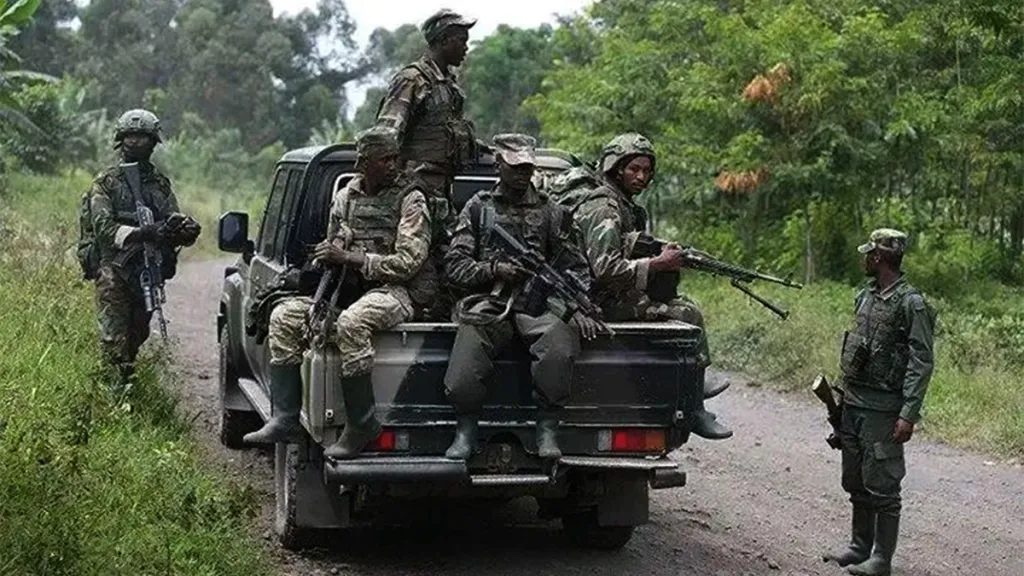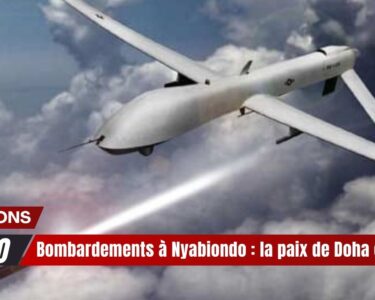
Masisi Center Under the Control of M23
By Analyson Kongo
The situation in Masisi Center, located in the Masisi territory of North Kivu, remains complex and dynamic, marked by significant economic, military, political, and administrative influences. These are further compounded by the ongoing conflict involving the M23, Maï-Maï groups, and other local armed factions. Here is an in-depth analysis:
1. Economic Influence of Masisi Center
Agriculture and Livestock: Masisi is often referred to as the “agricultural breadbasket” of North Kivu. Its economy primarily relies on:
- Agricultural production, including maize, potatoes, and beans.
- Livestock farming, particularly cattle, which provide meat and milk essential for urban areas like Goma.
- The fertile volcanic soils attract both local and international investors, but also ignite land conflicts.
Mining Activities: Although less exploited compared to neighboring territories like Walikale, Masisi holds valuable mineral resources such as coltan and cassiterite. Armed groups controlling these zones derive significant income from mining activities.
Informal Commerce: The control of trade routes connecting Masisi to Goma and Walikale (via Sake and Kitchanga) is another source of revenue. Armed groups impose illegal taxes on these routes, further burdening local commerce.
2. Military and Security Influence
Strategic Role of Masisi Center: Masisi serves as a critical junction linking Goma, Walikale, and other regions in North Kivu. Controlling Masisi Center offers:
- Access to key trade routes.
- A base for operations across the province.
- Dominance over local populations and resources.
Presence of the M23: The M23, reportedly supported by external actors (according to UN reports, primarily Rwanda), seeks to solidify control over strategic areas of North Kivu. The capture of Masisi Center bolsters their regional influence and military mobility.
Maï-Maï Groups in Masisi: Several Maï-Maï factions operate in the area, including:
- Maï-Maï Nyatura: A predominantly Hutu group opposing the M23 and defending Hutu interests.
- Maï-Maï APCLS (Alliance des Patriotes pour un Congo Libre et Souverain): Composed mainly of Hunde community members, based around Kitchanga and active in Masisi.
- Maï-Maï Shetani: A less structured group involved in localized land disputes. These groups often clash with each other or cooperate to counter the M23, depending on the circumstances.
3. Political and Administrative Influence
Ethnic and Political Conflicts: Masisi is a multi-ethnic region (Hutu, Tutsi, Hunde, Nande, and others) where disputes over land and power are aggravated by local political actors. The M23 positions itself as a defender of Tutsi Congolese rights but is widely seen as a destabilizing force supported by foreign interests.
Administrative Instability: Masisi Center’s administrative control is highly volatile, alternating between official authorities and armed groups. Local officials are often manipulated by these factions to legitimize their presence or extract illegal taxes.
Regional Influence: The M23’s control over Masisi Center could be used as leverage in political negotiations with Kinshasa or to strengthen their foothold in neighboring territories like Rutshuru.
4. Implications of M23’s Control Over Masisi Center and Kashebere
Increased Influence of M23: By taking Masisi Center, the M23 gains direct control over an economically strategic zone. This also provides a military advantage, enabling them to expand operations to other areas or threaten nearby towns like Sake and Walikale.
Displacement of Other Armed Groups: Local factions like the Maï-Maï are likely to retreat or engage in direct conflict with the M23, escalating insecurity.
Worsening Instability: The M23’s presence in Masisi Center could lead to increased displacement of civilians and heightened ethnic tensions.
Strategic Neighboring Cities: Key towns around Masisi Center include:
- Sake: A gateway to Goma and a vital trade hub.
- Mweso: An important locality for Maï-Maï APCLS.
- Kitchanga: An economic center and a base for Maï-Maï groups.
- Ngungu and Kibabi: Significant agricultural zones.
Conclusion
The capture of Masisi Center by the M23 carries significant economic, military, and political ramifications. It strengthens their regional influence while intensifying tensions with local groups such as Maï-Maï Nyatura and APCLS. This development may also amplify international pressure on the Congolese government and its allies to pursue a political resolution. The situation remains volatile, contingent on regional dynamics and Kinshasa’s ability to reassert authority in the region.




